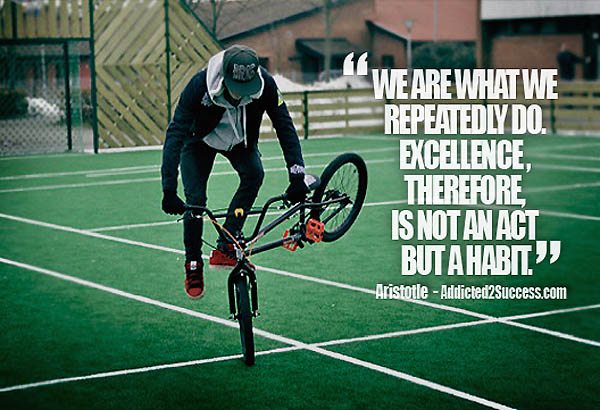
"Society is an illusion to the young citizen.
It lies before him in rigid repose, with certain names, men, and
institutions, rooted like oak-trees to the centre, round which all arrange
themselves the best they can. But the old statesman knows that society is
fluid; there are no such roots and centres; but any particle may suddenly
become the centre of the movement, and compel the system to gyrate round
it, as every man of strong will, like Pisistratus, or Cromwell, does for a
time, and every man of truth, like Plato, or Paul, does
forever."
---
Ralph Waldo Emerson,
"Politics"
It
is almost an axiom that the sins and failings of earlier epochs are always
clear to our mind, but that our own are at best hazy. The greatest tax on
our understanding is why the obvious wasn't so
obvious to our ancestors and forefathers. Mustn't they have known that the
extermination of indians was an unspeakable evil, that oppression in all
its forms was an abomination? Mustn't
the odor of hypocrisy have reached their nostrils when they spoke proudly
of "inalienable rights," "the rights of man," "fraternity and liberty,"
"equality of all"? Wasn't there a head of state who winced just a little
when killing and brutality were presented as "civilizing acts" or spoken
more vainly as "manifest destiny"?
We
forget that our predecessors, too, could look back on history from a
superior vantage point, mindful of the folly and inhumanity of their
predecessors, proud of the piecemeal gains made in their day. We also
forget that our own age will be the object of moral and aesthetic
scrutiny, and that a new era with fresh vision will see most clearly
everything to which we are presently blind.
One lifetime may be too brief for human intelligence to surmount
those practical interests which preclude a more impartial rendering of
things. Collegial loyalties, institutional affiliations, equity
relationships, ideological kinship, the internalization of social norms
and, not least, self-interest cloud the larger picture. It is the job of
moralists and social critics to anticipate how
successive generations will see us and judge us, and to inquire into the
transcendental aspects of that future wisdom.
The history of the twentieth century is already being written, but
by men and women who were produced by it. The texts of today will
doubtless see many cycles of revision, and those that are
finally fused into the consciousness of our progeny will read very
differently than they do now.
What will the prevailing judgment of our age be two or three
centuries from now? Anyone's guess is as good as mine, but I suspect that
historians and intellectuals will look more critically upon our market
economy than most of us today do, and challenge our prevalent notions
about the good life. Their stream of consciousness might resemble some
version of the following:
I. Homogenization Of Identity:
The Way Of The Beast
"With what pride did the world's pre-eminent
military and economic power congratulate itself for being so diverse, so
individualistic. Too few noticed that this diversity and
individualism was largely exaggerated, that the capitalist Beast could take any diversity and turn it into a
product, a magazine, a radio
or television talk show, a Disney film; it could derive profit from such
diversity and quickly make it an orthodoxy. It could laugh in the face of
anyone who thought himself superior because, alas, everyone
was, at bottom, the same: a buyer, a seller, a consumer, an ego that
defined its worth by the Beastly yardstick.
"The Beast was sophisticated and cosmopolitan. It
could stand to listen to the most pointed, most incisive, most energized
and impassioned protestations against it, for it knew something that its
vociferous opponents did not: that every impulse and passion, every idea
and conviction, every idiosyncratic trait or talent could be
assigned a pricetag and sold to someone, and that often the most appealing
product was the one that was the most scathing, the most original and
thoughtful, the most revolutionary and visionary. All self-styled
radicals, be they hippies, greens, socialists, feminists, or anarchists
also served the Beast, in one way or another. They, too, had a slice of
the market, sought fame and money and recognition, yearned to
appear before the Beast's television cameras. The loud protest against economic injustice
and poverty and social disintegration and alienation was merely another
product, albeit one of a different shape and color. Ideas without
salesmanship and marketing do not pay the bills,
and few, if any, human beings have the moral fiber to live a long life in
poverty. The Beast understood this better than anyone. He was too familiar with that
human craving for attention and
prosperity.
"The so-called men of God were as slavish to the
Beast as anyone. Who among them called for the Beast's demise? Who among
them was keenly aware that all the lovely temples and statues and
paintings were subsidized by the Beast's many toilers? Who refused the
Beast's lucre? And there were those positively ecstatic about the Beast,
those who preached that prosperity and riches and glory would be his who
simply accepted Christ -- forgetting, of course, that Christ arrived on
earth to offer men an alternative. . .
"Few really understood that the owners of capital
were as much enslaved as their workers; they, too, obeyed the laws of the
Beast, genuflected before fame and money, fought most
energetically for the Beast's right to exist, opposed the Beast's
arch-enemy (socialism).
"In the end, many with a novel thought, a
spiritual vision, a universal message, an independent mind were sucked up,
drained of their originality and imagination, easily commodified and
homogenized. They became rich and famous and widely adored, but they had
nothing useful to say anymore, their revolutionary zeal having been
sapped, their place at the table of success having been won. They became
as bland as a toaster oven, as marketable as a red, shiny automobile.
"There is much more to be learned about the Beast
and what happened to him, but this on another day. . ."
II. Axiological Primitiveness
"Once upon a time people lived in close proximity.
They knew one another, were interested in one another, saw their lives as
meaningfully intertwined. Neighbors got together over tea or coffee. Kids
would play with other kids in backyards. People felt some type of
comraderie and association. Meaning they construed as either religious faith
--- trust, however inchoate, that the beautiful world was created by a
benevolent deity --- or as an earnest life filled with good works and acts
of charity.
"By the end of the twentieth century, much of it
had changed. People worked most of the time (six days a week at least, 50
or 60 hours a week on average). They were as likely to see others as
'transactions,' as means to ends, as they were ends in themselves. They
were as likely to communicate with others over a computer screen as they
were face to face, to 'chat' by typing phrases in a tiny rectangular box
to people likely to be as far away as an entire continent. They were more
apt to sit in front of a television set with five hundred channels than
socialize with neighbors, distant relatives, office co-workers. A
broadcast four thousand miles away was as likely to seem 'real' as a
morning conversation at a diner. A fake television personality was as
likely to be a friend as someone encountered in a club or in church. An
e-mail acquaintance might easily be seen as a romantic possibility or as a
sexual fantasy.
"Possible factors in this increasingly
impersonalized world: interstate highways (they scattered houses and
neighborhoods); dissatisfication with cities, the desire to flee to the
suburbs; the television, the PC, the Internet; the division of labor,
which required ever greater levels of productivity and output.
"Increasingly, the circumference of shared
interpersonal experience dwindled. The social center was occupied by
corporate advertising, with which many isolated individual selves could
identify in some way. People might not know much about their neighbor, and
might not care, but they could learn enough by knowing which institution
they were affiliated with, which car they drove, where they took their
vacation, and how much money they earned.
"In time, everything 'public' was scorned: public
schools, the public sector, national healthcare; everything 'private' was
lauded: private schools, private property, the private sector. The
richest, most powerful nation in history could put men on the moon, create
the Internet, sequence the human genome, but not produce what might be
called the engaged citizen, the person rather well informed about current
events, deeply knowledgeable about history, and deeply inspired to right
society's wrongs.
"And what of the older notions of 'meaning'?
Preoccupation with the unseen 'other world,' with God and heaven, gave way
to obsession about financial portfolios, early retirement, the means to do
everything fun and exciting. The more astute members of the clerisy and
business world figured out, in their infinite sophistication, that meaning
is partly a social convention, that ambiguity is the oxygen all social
events breathe, and that the smartest course is to focus more on the
careerist aspects of the game than on communicating anything likely to be
seen as personal conviction. Of course, many members of the educated
classes were convictionless, but that's beside the point. What was
important was moving around in the right circles, making nice with people
of status and distinction, aggrandizing one's name and reputation.
"The masses, to paraphrase Thoreau, led lives of
quiet desperation. They nestled contentedly in their abodes, satisfied
that their many hours of laboring could yield them enough to pay the
monthly cable bill and take home the newest kitchen appliance. They were
no strangers to fecklessness, but with a spouse and kids and work and
plenty of entertainment, they made do. An occasional prayer, irregular
church attendance, and a solitary moment or two filled the void for them.
'Life,' they'd murmur, 'could be better, could be worse; 'tis only my
business to labor onwards.'
"A strange era it was. Never had nature been so
thoroughly figured out and mastered. Never had mechanical and technical
problems received so many creative solutions. Never had so much been done,
with the era's heroes and countless followers left to behold their many
accomplishments, wondering, 'What now?'"



















